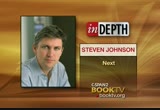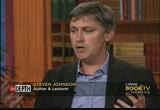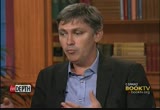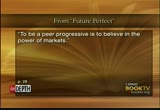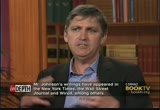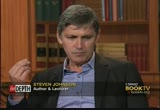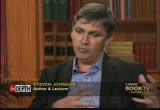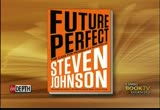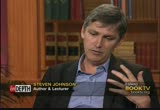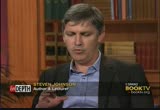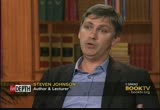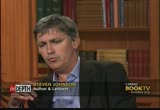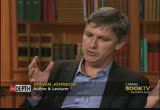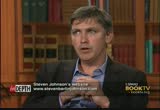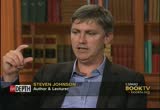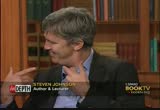tv Today in Washington CSPAN November 7, 2012 7:30am-9:00am EST
7:30 am
this is extremely difficult week for all those who suffered at that time and it had to live with those memories ever since. and yes, of course i can confirm that with our new lives, what is new evidence that that will be pursued rigorously and we provide more support and order to make sure that is the case. >> under the previous government, officials used discretion to refuse to provide information to people who are brought up in care about the cases. will the deputy prime minister look to open the file of the people who were brought up in care, can find out what happened to them? >> deputy prime minister? >> i think is right in saying i think all of us, given a daily drip drip effects of these horrific revelations seem to get worse every day taking place on a scale that was before not unimaginable. we send out a clear message, all sides of the house to any victim of sitting at home alone, still harboring these terrible memories and this terrible suffering that they endured, that this is the time for them to speak up if this is the time
7:31 am
for them to come forward. we will help them. will reach out to them and make sure that their suffering is a tone for and where we can find those who perpetrate these terrible abuses, that they're brought to justice, even several years since my first occurred. [inaudible] has misled the public. [inaudible] people in scotland are losing faith. does the deputy prime minister -- [inaudible] >> i hope it would defer to recognize we're working on a cross party basis, particularly between the parties he believed in the maintenance of the families of the nation's, the
7:32 am
united kingdom, to ensure that there is a fair legal and decisive vote in the reverend. i certainly agree with her character generation. i mean, the spectacle of the demonstration using taxpayers money to stop disclosure to the public of legal advice they never sought in the first place. on a succumbed you can make it a. it's like dropping iceland from prosperity. >> [inaudible] >> that is precisely why the centerpiece tax reform of this government is a radical one, to lift the point at which people start paying income tax out to 10,000 pounds. from the 6400 pounds when we took over from labour. and that's when we deliver that will deliver a about a 700-pound tax cut to over 24 million basic
7:33 am
tax rate payers in this country. it's something we should celebrate. >> selling arms to the gadhafi regime right after the uprising. is the deputy prime minister -- [inaudible] a country where human rights is nonexistent, and we know how women are treated there. is that the democratic policy as well? >> as he will know we have the strictest controls of almost any developed economy in the world governing the conditions in which we can sell arms to other countries. nothing that we do in promoting our arms industry which employs thousands of people in this country impedes our ability to tell our allies and other governments where we have real concerns about human rights record, about the democratic record, and about their civil liberties record that is exactly
7:34 am
what the prime minister has been doing this week. >> mr. speaker, i sometimes think the deputy prime minister would like to see me to a jungle in australia for a month. [laughter] but would he agree with me that when two different policies get together in a national interest to clear up the mess that labour -- [shouting] and in particular driving unemployment down, in colby it went down four points 6% last month. >> for the first time in my parliamentary career i wholeheartedly agree with him. [laughter] let us favor and treasure this moment. [laughter] because i suspect it will be very, very rare indeed. but when i heard the honorable member had been sent to a jungle with insects, i thought that despite the appearance of civility from our new chief whip, this indicates a new
7:35 am
disciplinarian approach in the chief whip's office. i agree with and we're doing a great job to go to fix the economy and to create jobs for people in future. that's a great shared endeavor. >> here, here. >> order. deputy prime minister and colleagues. >> here on c-span2 will lead the british house of commons now as they move onto other legislative business. you've been watching prime minister's question time aired live wednesdays at 7 a.m. eastern while parliament is in session. you can see this weeks question time again sunday night at nine eastern and pacific on c-span. >> and for more information go to c-span.org, click on c-span series for prime ministers questions, plus links to international news media and legislatures around the world. you can also watch recent video including programs in with other international issues.
7:36 am
>> now a discussion with author and lecturer steven johnson. is a best selling science writer, author of eight books and the cofounder and editor in chief of feed. >> host: in your newest book, you use the term.hos ter progressive.e-progreive. what is that? >> guest: it's my attempt to come up with a term for this new political philosophy that i see around me. all the book is really, kind of a series of stories about these people who are trying to change the world and trying to advance the cause of progress. but i don't completely fit thepe existing model that we have between the left and the right or the democrats andeft i republicans. and they believe in many ways that the way that the internet was built, the way the web wast, built t, the way things that wikipedia were built, using these
7:37 am
collaborative. the works, where people come together from different points of view and openly collaborating, building ideas, that that mechanism is a tremendous engine for progress and growth. but it doesn't necessarily involve a government and doesn't necessarily involve capitalism or big corporation. so when you believe in a system come you don't necessarily believe in the traditional anchors that the left are traditional anchors at the right. so i felt that it is time that we had a category to describe these people come as a pure progressives is what i came up with. >> host: post central authority, post decentralized authority? >> guest: yes, the best example is the way the internet was built and the way that the web was built. the internet was partially a result of visionary government unnamed, which we've heard a lot about in the early days there is some important funding for the government.
7:38 am
for the most part from the internet was built by louis collaborative networks come with that in leaders, without any bureaucrat that people who aren't actually trying to patent their inventions, want working for private corporation a more freely building on each other's ideas that were fighting those ideas sharing them. now, this is one of things where if we had this conversation 40 years ago, you said that the lovely utopian idea and i'm sure that will work well in your commies to mourn for the california when you are making baskets. ..
7:40 am
this city is so complicated. that trying to understand it is too hard for a small group of kind of centrally located planners to ever fully be able to do. and so the way the markets work as they say look, no individual person has to understand the whole thing. the market works because every individual in the market understands just a little bit of it. you can focus on your part i am selling, creating, sharing. and your part of the world, and over all the totality of all these agents in the marketplace will end up coming up with new solutions, problems, meeting people's needs and so when. so markets are a kind of peer network in that sense. where the.ditional progressives differ from traditional libertarians is that we don't think that markets solve every problem in society. there are many human experience that are not necessarily solvedc
7:41 am
by markets but in five markets create their own problems sometimes. they create bubbles forntervet instance. there's a lote of companies thaa were trying to build a globalll network world. compared to open source pier produced solution of the internet itself and the web and now wikipedia and many other things. there are places where you can use decentralized structure without involving traditional market relations, and that is what pier progressives are trying to do. >> host: what is the chicken gun? >> guest: okay, so the book starts with this kind of opening preface about progress, society and inability to, understand, you know, extent to which progress is happening all around us and misinterpret it, misinterpret where that progress comes from. the example.
7:42 am
astonishingly safe to fly in a commercial airplane now. just this extraordinary thing. we don't hear that much about it, because there is kind of bias in the media and bias really in our own minds, against, stories of steady incremental progress where something in society gets better, 1% or 2% a year which over time stacks up to the amazing kind of break throughs, but, the headline of, this thing is 1% better than it was last year, is most boring news item in the world so people don't write about this, same with airplane crashes, when the plain goes down, there is nothing to go down so it doesn't report. so in the book i talk about it has gotten so safe to fly in a commercial airplane you're more likely to be elected president of the united states than you are to die in a commercial airplane crash. the example i give kind of
7:43 am
the set piece in the book is story of the miracle on the hudson. reminding my way to the, so they have right context. when the us air flight landed in the hudson and everyone survived i thought it was very telling how the media chose to cover this event. there are really two different ways they covered it. first was superhero pilot, captain sully who indeed was an amazing pilot and amazing job. there was this kind of language of the miracle on the hudson. almost like supernatural event that happened. when people didn't focus on nearly enough was the plane, the plane had, performed admirably during this, during this event and, it did so on a couple of levels. one when the geese collided with the jet engines they didn't explode, they didn't shatter, they didn't send of shard. is of titanium in the
7:44 am
fuselage causing the plain to break down. that is because every single jet engine, every single model of a jet engine on aircraft is tested with a chicken gun. they fire frozen chicken carcasses to a spinning jet engine to make sure this thing can handle it without exploding and shattering. that is your taxpayer dollars at work, right? this is government initiative here, and everyone on that plane was very glad that those chickens had been flown to test to make sure the engines could survive. but the other thing going on in that plane the engine survived and kept enough power to power the electronic system. and, that enabled, what we call the fly by wire system of the airbus 320 to give sullenberger all the assistance landing the plane properly which was the key to his success and the fly by wire system was originally developed by nasa. it was refined over the years. airbus kind of mod deled it
7:45 am
in the 320, it was a huge part of success of that landing. because there wasn't a single hero to point to, we didn't, you can't put 1,000 engears own the cover of "time" magazine, right? so you put one person on the cover of "time" magazine. so often it is that tinkering and improving and modifying with thousands of minds working on a problem, how do you make an airplane safe really responsible for the progress we have in our society. one of the things i've tried to do in a way i try to do with a lot of my books is to tell story of group collaboration where people come together from different backgrounds and work to make the world a better place. >> host: you write, i suspect in the long run the media bias against stories of incremental progress may be more damaging than any bias the media display toward the political left and right. >> guest: around that point in the book i have a kind of
7:46 am
a social studies quiz of other, kind of key indices of social health over the last 20 ore 30 years. and question to the reader. how we're faring as a society in the united states on everything from violent crime to divorce rates, to automobile fatalities, to air pollution and so on. it is 10 or 15 of these things. every single one them over the last 20 years there has been dramatic positive change, many case, 20, 30, 40% over that period. we just don't hear about that side of our society very often because, for whatever reason it is just not newsworthy. in fact you're much more likely to get attention by telling a story of slow, and steady decline than you are a slow and steady progress. it may be in fact that there's a bias in our own minds which the news media
7:47 am
just kind of reflecting, because one of the things i came across today in this book, when i was researching this really shocked me with crime, the story of crime in the united states over the last 20 years may be the most extraordinary sort of social development in that period, is incredibly optimistic story. it is amazing how safe. new york has about 1/10 the number of murders it had at its peak in 1990. this is generally a national trend. we've seen incredible improvement really in all sorts of crime around the country. that actually is something the media has reported a little bit. it was within malcolm godwell's book, the tippingpoint. you see stories about the new york success story and l.a. success story. for the last five years gallup is asking americans is crime getting better or worse, for the last five years despite that coverage and despite the incredibly positive news, more
7:48 am
americans think crime is getting worse year after year, even though that is empirically not true. people assume things have gotten worse even when evidence staring them straight in the face. >> host: you alluded to this, steven johnson, a little earlier but you have the running theme in almost all of your books. this points it out. this is from future perfect. most new movements start this way. hundreds of thousands of individual groups working in different fields and different locations start thinking about change using a common language without necessarily recognizing those shared values. you just start following your own vector, propelled along by the people in your immediate vicinity and then one day you look up and realize all those individual trajectories have turned into a wave. a dense, network of human intelligence, is what you call it. >> guest: you know, i feel that it is a theme of all the books but, with future perfect, it is the most
7:49 am
pronounced because the fun thing about future perfect it is a book about something that hasn't fully happened yet. it is a book a emerging movement i'm seeing around me, doesn't really have a name, trying to figure a way to kind of describe it. but you do hit that point as an observer of society where you can look around and start to say, hey, i'm seeing all these interesting people, working on projects in the case of future per -- perfect people working in cities and things like patent reform and new ways to fund prescription drugs. new ways to collaborate on the internet and fund the arts which is quick starter, i read about. a lot of different fields and made up of different stories about different fields, but it is still very early in the game with all these developments. and so, you know, future per fwek is designed kind of a short book, i wrote it, not to be fully comprehensive,
7:50 am
in a way amplify those voices to celebrate what they were doing and inspire other people to come along and build on the new tradition. >> host: from your book, where good ideas come from, natural history of innovation, published in 2010, the history of being spectacularly right has a shadow history lurking behind it. a much longer history of being spectacularly wrong again and again and not just wrong but messy. error often creates a path that leads you to keep error often creates a path that leads you out of your comfortable assumptions. being right keeps you in place. being wrong forces to you explore. >> guest: you know, there is an interesting study a number of years ago about scientific papers by scientists who had made significant break throughs at some point in their career.
7:51 am
and, what they're kind of publishing pattern was over the course of their career. they compare that to scientists to ended up not having real break throughs but published a lot, but didn't change, didn't have a truly disruptive idea and what they found was that by looking at it you can judge this looking at citations with newspaper, how many times each newspaper was cited by other papers, things like that. you do the big statistical analyses because all the stuff is online now and kind of archived and what they found was innovators, the ones who had really, you know, profound new ideas on science, had this interesting pattern where they, actually had a lot more kind of failed papers. and they published, they had far more volume to their work, and a huge number of those papers never went anywhere. it was every now and then, there would be one that would be incredible breakout hit and would change science
7:52 am
forever, then most of the time they were starting out hitting like baseball a short little ground out whereas the none in -- noninnovative thinkers, who hadn't had disruptive idea, they were just hitting kind of singles and were much more consistent, had higher batting average but weren't swinging for the fences. so the argument is that to really be kind of successful in a new way and open up a new door or possibility in your field or science or some other field you have to have tolerance for failure and error. that is one of the things we see in silicon valley. is that that is if you're an entrepreneur in silicon valley and you haven't had at least one failed startup
7:53 am
people look at you strangely. you're supposed to try and miss that means you're taking risks. investment capital model is found on the idea that 90% will be failures. it is 10% will be huge failures. it is one of the thing that governments have to be at. i talk a little bit about it in future perfect. you have to have a sense of experimentation and when you experiment, you get things wrong. and you go backwards or end up going down kind of, kind of false leads. and so you have to build up that kind of acceptance of failure as part of the process. >> host: in where good ideas come from, the natural history of innovation you have seven ways of innovating very quickly. you call them, adjacent possible, liquid networks, the slow hunch, serendipity, error, accept taigs and platforms. if we look at last two.
7:54 am
a what is except taitiony. >> guest: thanks for not making me remember all of them. i think i would have passed that test. it is a very profound concept with a very awkward word. it is not my word. a word coined by the late brilliant evolutionary theorist. steven gould many years ago. and, gould and verba were talking about in the context of evolution but i think a word brilliantly applicable to innovation in technology and science and many other fields. the idea is this. in evolution there are many cases where a feature or a trait that evolved for one particular purpose turns out surprisingly kind of serendipitily when the organism in the environment
7:55 am
changes. an example of this is feathers. we think feathers evolved to keep their owners warm basically. over time some creatures evolved feathers decided to adopt crazy new lifestyle of flying and ones had new feathers were better at it than ones that didn't have feathers. at one point evolution starts to skult the feathers to make them aerodynamic. so they're still just keeping them warm. flying birds have slightly asymmetrical feathers which gives them better aerodynamics essentially. you can see the shaping of after the change. the idea in accepttationy trait designed for one thing gets designed for something else. in the technology in it history of creative arts, in any field where people try to feel inventive and imaginative, that practice of taking an idea from one place and moving it over and
7:56 am
kind of applying it in a new context is incredibly powerful. there's a great story actually not in where good ideas come from that kind of came to me after words, from apple, the most inno site tiff company in the world right now. when apple was trying to figure out what to do with its stores in the early days when they were starting to plan their retail stores, they, this was a very controversial thing, this is the hilarious, people look back, apple will not be able to do retail. this will be a total disaster. apple being apple didn't want to just kind of study its direct competitors. all right? normal way you do it i will open up a consumer electronics store and study other consumer electronics stores out there. so i will look at radioshack and best buy or whatever. apple didn't want to do that. they wanted to reinvent when it meant to be a consumer
7:57 am
electronics store. what is a space where consumers just feel like they're having an amazing experience where they just love it? and so they went and studied five-star hotels, four seasons and ritz-carlton. they made their employees go through the training program at ritz-carlton. what they came out with was, what do people love about a five-star hotel. they love the concierge. they love going to the concierge whatever the issue is the concierge will figure it out. i want to take a hot-air ballon over the city. right i can make that happen. here is the what would a high-end hotel concierge be in the consumer electronics store? genius bar. hotel concierge xap over and put. apple are the most profitable retile environments by square foot on the planet. it is that kind, the cliche is thinking outside of the
7:58 am
box. i don't want to say that. it is not just outside the box. go to some other field, go to some other field and discipline and see how you can trigger a new association in your head that makes you approach the problem you're working on in a new way. >> host: platforms. >> guest: one great thing, this is a kind of perfect connector to future perfect. this is the way in which the books are deeply connected to each other. one thing that we have seen with technology platforms, the internet, the web, things like facebook and twitter, they have this extraordinary ability when they're done right to allow for all sorts of inno vigs on top of that platform that the creators never dreamed of. so you create your platform. you say i will set up a social networking service and it will behave in this way. then you open it up to other people who can come and build on top of that platform. when they end up doing is,
7:59 am
if you set up the system right, turning your tool which you thought would be used in this way, they discover all these other uses for it that were not part of your gameplan. and, that's the, that's one of these ways in which a platform that nobody owns like internet or web which is collectively owned by all of us. cannon the less be a great driver of private sector innovation because the platform is open. any company can come along and build something on it and improvise. there is couple really good examples of this. one of my favorites is way in which twitter was used by protest movements, by occupy wall street and arab spring and things like that. on pie wall street began as a hash tag on twitter. the hashtag is little hash symbol and whatever it is, super bowl or occupy wall street or presidential debates so everybody can follow that particular hashtag and see what's going on.
8:00 am
occupy wall street was nothing but a hashtag for three or four months. started as a hashtag and only later people said, hey, we should occupy wall street. hashtag was first thing that was successful and people decided to go down in manhattan and camp out on the square. what i love about this, if you go back in time to talk the people investing twitter, evan williams and jack dorsey, and say to them in the future your creation, your platform that you're building will be used to organize protests all around the world by hash tags, they would have said, what is a hashtag? because hashtags were actually not part of their platform. it was something that users started to add. they didn't have any vision of political protests with twitter of course but they didn't even have the vision of hashtags. that came from people using twitter in that way. when we create platforms that allow this kind of
8:01 am
creativity from ordinary people, suddenly you see this great, kind of rich ecosystem of discovery and invention that happens. and think that's, that is one of the things i'm very optimistic about in terms of future perfect which the government can create platforms like this and encourage ordinary people to come and help. this is really true in terms of local communities, where local governments sets up a platform that anybody can report a pothole, report a need they have in their neighborhood or report a problem or opportunity they see. because technology allows so much more of these kind of easy ways to get information back to the city, the city can be much more adaptive and resilient and innovative in the way it solves problems. instead of bureaucrat nightmare that some governments are, you can actually have a government platform that is open and inventive and creative. this is. >> host: this is booktv's "in depth" on first sunday
8:02 am
of every month. we invite an author to talk about his or her body of work. this month we're pleased to have with us, best-selling author, steven johnson. here is list of his books beginning in 1999 with a book called, interface culture. emergence came out in 2002. mind wide open, 2005. everything bad is good for you. came out in 2005 as well. the ghost map, 2006. the invention of air, 2008. where good ideas come from. 2010. and his most recent is called, future perfect, the case for progress in a networked age. he is our guest for the next three hours. if you would like to dial in and talk with mr. johnson, 202 is area code. 585-3880. eastern and central, 585-3881. west, mountain and specific time zones. 2 2 is area code. contact mr. johnson electronically as well.
8:03 am
booktv@cspan.org is e-mail address. wit -- twitter handle is@booktv. we'll take the calls in just a minute. mr. johnson, you mentioned twitter, am i right you were the first person on twitter to have over a million followers? >> oh i don't know if that is exactly true. i have a lot of followers on twitter. >> host: you were one of original users. >> guest: right. what happened was, i, early on i decided when facebook and twitter were kind of starting i decided i could only have one social network in my life. so i decided to invest in twitter and throw my eggs into the twitter basket. so i think i was one of the first authors who was really using twitter. i think actually for the invention of air tour, i. it is wonderful thing as author because there are all these things when you have a book out don't really warrant on a a blog post but it's really helpful to say,
8:04 am
hey, i'm reading tonight. here is review of my book. something, an article i just wrote. i was really using it a lot and getting a lot out of it. at that point twitter, it was early in the service and they created something called the suggested user list which was basically for people who were signing up for the first time to have a few people that they might want to follow just so that they come actually have some information in there on their screen. if you don't follow anybody on twitter the service has absolutely zero value to you because there is nothing to read. they created this kind of suggested user list of folks. i think because i was involved as an author with the service from an early point they put me on this list and that gave me a lot of followers because i was on that list now. but now i no longer have that kind of artificial influx of followers because they have stopped using the suggested user list. every time i tweet something out i instantly lose, like 30 followers because, there
8:05 am
is some people there is always 30 people i don't want to listen to this guy anymore. so it's a little sad. >> host: how often do you speak to corporate groups or corporations about your thought process? >> guest: it is a big, slowly over the last 10 years or so, my, kind of speaking part of my job has gone from being something that i did occasionally to a big part of what i do and what's great about it is, is that i speak to a lot of different kinds of groups. as we'll see as we talk through the books, the books are about a lot of different topics. so i'm particularly with, where good ideas come from, innovation is topic just about everyone is interested in. i get to not only speak to corporations but i talk to schools a lot. and, and nonprofits, future perfect. you know, is very popular, only been out for a couple weeks but i've already seen
8:06 am
great response from the nonprofit sector because it is a lot of values that resonate with those folks a lot. you so you get to drop into and you talk to a a food company. then you go and talk to freshmen out of college somewhere. you go and talk to some amazing new philanthropic organizations trying to apply these new considered. -- ideas. there is lot of diversity in the groups i've talk to. >> host: i got a several tweets already. this is from jose silva, he tweets, just sold a book to him by making the point that the plane is also a hero in the new york city water landing. >> guest: nice sell. >> host: i want to look at your 2005 book, everything bad is good for you. how today's popular culture is making us smarter. what is aq? >> guest: what is, autism? >> host: the --. >> guest: oh, so the, one of
8:07 am
the things that we've learned, over the last 20 or 30 years is the science of the mind has advanced in such a important way in lots of different fields. psychology and neuroscience and neuroimaging and things like that, is that the old way we had of kind of scraping intelligence is too simple. and, the measures that we have, for intelligence, don't readily, kind of coloops into one dimension, in fact they're, gardner, the brilliant harvard scientist and discovered there are multiple forms of intelligence. there is spacial intelligence and emotional intelligence and there is kind of problem-solving intelligence and so on. and so we have seen that, what happens in a society it different technologies come out, different cultural developments happen, different models of education happen and, they
8:08 am
have kind of surprising effects on those different kinds of intelligence, and so, when we, when we have a society with, you know, kind of tremendous explosion in technology, which causes us to have fewer face-to-face conversations or fewer conversations where we hear somebody else's voice, one of the risks is that emotional intelligence we have, the ability to kind of read, kind of emotional nuances of someone's tone for instance gets challenged because we're texting and tweeting and sending short little e-mails to each other. we don't have the full rich experience of face to facial expressions which are a huge part of human communications. we sacrifice some of our emotional intelligence to get other kinds of intelligence, problem solving intelligence, the ability to understand complex systems which is something technology helps us quite a bit. so in that book, i was
8:09 am
trying to give larger, and more optimistic portrait of where technology and popular culture was taking us in terms of our brains. >> host: you write the dirty little secret of gaming, online gaming how much time you spend not having fun. when you put down the game and move back into the real world, you may find yourself mentally working through the problem you've been wrestling with. if this is mindless escapism it is strangely masochist tick version. >> guest: there's a centerpiece in in, everything is bad is good for you, which is defensive gaming which, if you listen to kind of conventional assessment of the state of kids today, this is a book, seeds of which started around 2000 which i wrote in 2004, 2005. there was just this default assumption, you hear pundits and people talking on
8:10 am
television writing op-eds and would just say the kids today they're being dumbed down by these idiotic video games and they're complete waste of time and so on, so forth. here i was kind of generation that had grown up with games. i've never been a huge gamer i've always been interested in it. i had seen what happened in the history of games they had gone from pac-man and, you know, "space invaders" where, him pell little graphics moving a joystick back and forth to a game like" sim city", managing a entire met troll police and dealing with a city with thousands of different variables and setting your own goals and building hypothetical models in your head on how the system should work. that was such an incredible story of complex, increased complexity in the games. i knew there was a lot of
8:11 am
challenging thinking that went on in those games even though they were frustrating. i think there was a sense games were this kind of instant gratification experience when in fact they were the opposite of that. when you play a complicated game like that you're constantly scratching your head, why can't i get this part of the game to work right? i'm stuck at this thing. if it were instant gratification you would instantly have a beautiful city with million and a half people in it but you never do. that's what pulls us in and think about all these problems. i tell you example from more recently again to connect the books a little bit. one of the big values of, future perfect, and, where good ideas come from, we saw a little bit in the kpas of x-damtation. the -- x adaptation. encourages that encourage us to bring little approaches and different points of view and different fields of expertise to bear on a
8:12 am
single problem, those systems are very valuable that is part of pier progressive vision of the world. diverse communities will solve problems more effectively. games turn out to be wonderful exerciser of that way of thinking. give you example from past couple years which i haven't had a chance to write about. my kids, my older boys, started playing this game, dawn of discovery. dawn of discovery is a game where you simulate a 14th century trading empire. it is not an educational game. this is a game for fun but turns out to be incredibly educational. you basically start with a little island and you've got some crops and little huts and build it up and start trading with other island and get wealthier you build a little town and build a little fleet. you can basically play it as warrior or play it as a merchant. you build up wealth. eventually you have all these objectives but it is incredibly complicated. at a certain point my kids
8:13 am
were playing and they wanted to build a cathedral. after you gotten a certain amount of wealth you could build a cathedral. they wanted to achieve this state in the game. but here's what you had to do to be able to build a cathedral. get your population wealthy enough to be able to afford it. you had to have enough stone that you would mine to be able to physically build a can three -- cathedral. you had to have certain spices elites of society would have the spices and support building a cathedral. which means you had to have a big fleet of ships to go get the spices somewhere else. which means you had to have a military fleet, naval fleet to protect the ships. so when my kids, 8-year-old, 10-year-old, for fun sitting there trying to build a cathedral. they're thinking like a city mayor. thinking like a merchant prince. thinking like an admiral, thinking like a urban planner, thinking inside the game for fun on saturday
8:14 am
morning. this is not what they're doing in school. they will beg to have time on this game. so it's a unified problem with all these different kinds of, thought processes and different kinds of fields that are built into the game. when you look at games like that and you say, compared to what i was doing as a kid which is watching the duke of hazards, i think you have to see that as progress. >> host: one more quote from, everything bad is good for you. one more answer and then we'll get to your calls and e-mails and tweets. if you're trying to evaluate a given person's emotional iq and you don't have the option of sitting down with them in person, the tight focus of television is your best bet. reality programing has simply recognized that intrinsic strength and built a whole genre around it. can you explain that? >> guest: yeah. so whenever you write a book, particular a book, everything bad is good for
8:15 am
you is most controversial. >> host: and best-selling. >> guest: good ideas and goes map are best-sellers. everything bad got more coverage. one those books people wanted to talk about but felt maybe they already read it because there was so much conversation about it. it sold wonderfully. i have no complaints but the other books sold better. but with a book like that you always have some section of the book where you wish you had phrased things slightly differently. there is defense of reality tv in that book. i can't tell you how many radio interviews i did where i got on, said our next guest thinks that watching "big brother" is making us smarter. here he is steven johnson. and i would have to kind of back down. what i say about reality tv is little more subtle than that which is, something like we were talking about in terms of progress, everything bad is good for you, is argument that popular culture in general
8:16 am
has gotten more complex over the last 20 or 30 years. there is this trend towards more complexity the kinds of stories it tells and number of say plot lines or characters on your average television show in the complexity of the games as we already talked about, in the complexity of technology we use on the computer screen. all that stuff. so that our, something has gotten more challenging in the, in the stories that we interact with as popular culture consumers. that was, the fact that complexity i thought was something people hadn't realized and was worth pointing out. what it was actually doing to our brains is sort of a second level to that argument. with reality tv what i was trying to point out, when we started having shows like "survivor" on television, the way they were comparing them is to documentries which is exactly wrong way to compare them whether television is getting better or not. reality tv shows are game
8:17 am
shows but they're game shows where you're company beating by kind of being in this motion aol battle, sometimes physical battle where you're actually competing physically but a lot of times you're kind of in this world where you're yelling at or outsmarting or outfoxing whatever it is with other human beings. thus they are about the kind of emotional intelligence of the participants and reality series. so all i was trying to say is, if you think of a reality show as a game show, that even in that most kind of debased genre of television there's still progress because there is more subtlety and nuance to "survivor" than there is to guessing the price of a refrigerator which is what people use to do on game shows when i was a kid or buying a vowel. and so, it's not that the game shows are, i mean reality shows, you know, a tremendous work of art or, if the choice is between
8:18 am
reading middle march and watching reality show you should read middle march. given people watch game shows way have them watch reality tv instead of game shows. >> host: is this promotion of here comes honey boo-boo? >> guest: i haven't seen that show. where we widen amount of channels there is more garbage but more three hours of booktv too at the same time. there's us as stuff you can point to and say, that is really terrible. it is astonishing. sometimes when i would give talks for everything bad is good for you, i would force people to watch the first five minutes of an episode of" dallas" from 19788 which was hottest show from reality tv. who shot j.r. show, listeners or viewers will remember. it is amazing. ever can catch it on tv fascinating to watch because
8:19 am
it is so, the relationship between the producers and the writers and the audience is so condescending. there is this very palpable sense that the creators of the show just think that the audience can't possibly understand who these characters are and they spend two minutes kind of going, these two people are brothers. did everybody get that? whereas show today, not just that edited more quickly, that they're able to kind of go much faster and challenge the audience. look at a show like, "lost" which was insanely complicated. that show would have never gotten anywhere near national television in 1977 or '78. so there is tolerance for complexity and, and being challenged that the audience has now that we didn't have when i was growing up. >> host: steven johnson is our guest on "in depth". bill in oklahoma, you are first up today. please go ahead with your question or comment.
8:20 am
>> caller: good morning. i like very much for the people that make these machines and exercise social responsibility and have the people in south los angeles or south chicago trained to make these machines. they desperately need work and also they would be paid a decent wage, relative to china and we wouldn't have anymore of this, at least we would be able to cut down majorly on our street crime if these persons had something constructive to do. >> guest: yeah, very interesting point. so there are two things i would say. it is true that we have seen in the success of these technology companies, apple and google and amazon, we've seen a great success in american innovation. that is the part of our society where we all agree that the companies have been tremendously successful and where we really lead the world in terms of technology
8:21 am
but a lot of the jobs that are being created to build those gadgets are actually overseas. many of them are in china. and so there is a question how these companies can help us deal with unemployment problem we have or lack of good manufacture manufacturing jobs in this country. let me make a point which is in "future perfect". there is question why the tech sector has been so successful. one then we all agree on the state of the economy, that the technology companies in silicon valley and seattle, increasingly in new york are the kind of envy of the world and one key reason for that i think is that the internal structure of these corporations was much more pure network way it worked. much lies hierachical, the decision making in silicon valley firm is much less about the boss at top and much more empowering local
8:22 am
employees to make decisions on their own, to innovate on their own. they're much more egalitarian the way they share the proceed. a lot of these company have extensive stock options plans where the lowest level employee participates when the company goes public and so on. all that stuff was new, when the first silicon valley, fairchild and intel founded in '60s and early '70s. they had this ethos where they were founded by a bunch engineers. they didn't have a lot of executive perks an everyone should participate in the production of the company. that practice i think is part of why the silicon valley and tech sector has been so successful. one of the cases being more equitable way we share profits inside a corporation, we can actually help deal with the wage in equality and wealth inequality problem we have in this country and have better more successful businesses. that is key value of pier
8:23 am
progressive movement i write in. >> host: from new york city, ralph, go with your question or comment for steven johnson. >> caller:. thank you. so interesting and so many things i want to listen to views and you're amazing. i never read any of your books and turn on the tv hear some of my thoughts being spoken. i feel like i'm glad there is someone else thinks the way i do about certain things. my question is, could you pinpoint or say anything to speak to a fundamental empowerment that comes with, sort of making history but not being aware of it. and that, it is sort of a secular spirituality in a way that we're part of a wider, there is a wider process going on that we're deeply involved in? i also wanted to say that i wanted to ask you if you thought it's possible that in new york city where i
8:24 am
live i watch the crime rate go down so substantially in my lifetime. and one thing that really, i notice it never was mentioned that videogames went on the increase. when i lived in poor neighborhoods, i found that the children were, young people, i should say the, teenagers and what not, that in my generation might have gone out and gotten into trouble, prefered to get into trouble with a videogame. so thus putting together my question which is, people who invented game maybe didn't think that would bring crime down? new york city, et cetera. thank you very much and i will hang up to listen. >> guest: thanks, ralph. i'm glad to hear our minds are in sync. mostly because i've been secretly reading your e-mail all these years and that's why --, no, i'm just kidding. two interesting questions. start with the second one first. there is very interesting correlation, we can't
8:25 am
necessarily say whether it is causation, very hard to test this, but, if you look for instance at carjackings and compare it to the success of the muchville lied game, grand theft auto, which is all about carjacking, the two kind of go like this. carjacking plummets in terms of the real world as more and more kids are virtually carjacking in the game grand theft auto. whether that is just an accident or whether there is in fact some sense in which, if you want to have the kind of the thrill of, you know, doing something like carjacking which is referred to as thrill crime. most people do it for the kind of excitement of it, it would seem a lot more sensible to do it on a screen and not actually arrested and not actually hurt anybody. so it is possible that the games have taken some violence out of the society making it virtual, very hard to prove this anyway. certainly as the games have gotten more violent, the
8:26 am
society itself gotten less violent. it is open question why that is whether there is a real connection there. your second point, the sense of being part of a, you called it a kind of a secular spirituality, and i think that is a lovely way of putting it. the sense that we're part of this larger process tendency in this society towards greater and greater, kind of social health and progress and that we're all participating in it. in our own little way is a huge part of my work. in fact, we'll probably get to it in invention of air, hero in my book, invention of air, joseph priestly who was writing in the 1700's, he was one first people to really formulate this vision of progress. to point out things were happening due in large part to the enlightenment at that time, every generation
8:27 am
people understand more of the world and more efficient and mortgage gets and solving the problems. there was amazing sense the future was before us a great kind of aspect of opportunity and positive change. and, you know, that is the kind of optimistic thread through all of my books. trying to write stories that remind people of that progress, so we, not so that we can rest on our laurels, so we can build more of it. >> host: well let's go there, the invention of air. >> guest: right. >> host: who was joseph priestly a little bit more? did he invent air? and what was his connection to john adams and thomas jefferson. >> guest: i stumbled across this book, this project, when i was researching, where good ideas come from and i thought i was getting ready to write where good ideas come from and i stumbled across joseph priestly and i got so obsessed and i convinced my publisher to let me write
8:28 am
another book before good ideas. priestly was a incredible figure of the 18th century. one of the great eccentric visionary minds of that period who not enough people know about. he's most famous for isolating oxygen for the first time. though he didn't actually do it for the first time and, when he did, instead of calling it oxygen he had called it defliscated air. which is not a very catchy title. he is in the britannica, that is his main claim to fame. he did number of other things. the most important one he was first person to truly realize, this was his first great breakthrough, he was the first person to realize plants were creating air. so the reason we have a breatheable atmosphere in the earth, actual oxygen, actual composition of oxygen on a planet would be far, far smaller than it actually is. because plants expel oxygen
8:29 am
as part of photo synthetic process we have this bubble bubble of breatheable air that surrounds the planet. that was one of the key break throughs of understanding out ecosystems work. we have air to breathe because plants manufacture it for us and we're kind of tied up in this global connection of the plants but priestly turns out to have done all these other things. while he was british by birth he was franklin's best friend when franklin was in london for those many years. he actually coelaborated with franklin on the air discovery which is a whole tas nating sideshow. priestly was one of the cofounders of the unitarian church in england and he had, his single most powerful effect on jefferson's religious views of anyone. jefferson was a huge, we would now say priestly fan boy and was incredibly moved by priestly. because he was such a
8:30 am
maverick he ended up getting run out of england in the birmingham riots and comes to the united states as really our first great kind of intellectual exile, coming for the kind of intellectual freedom. then gets into, gets bound up in, kind of has a falling out with adams. gets bound up in all these controversies in the united states and, ends up being this single most mentioned figure in the adams-jefferson letters. he is mentioned 10 times as many times as franklin is, for instance, in the famous correspondence between adams and jefferson. he is kind of like this unsung, this missing founding father who shows up in all these kind of key points in our history that not enough people know about. so i wanted to kind of celebrate his life in that book. >> host: well, steven johnson, very quickly, three quick quotes from, the invention of air that you touched on. priestly and franklin's hunch that plant life was central to the planet's
8:31 am
production of breatheable air first approached scientific consensus in the late 1960s, after two physicists proposed in a seminal paper that the vast majority of atmospheric oxygen originated in photosynthesis, the natural level of oxygen on earth, was less than 1% of the 20.7% we now enjoy. that's quote number one. number two, jefferson's enlightenment sensibilities made it difficult for him to keep his christian faith alive but the political realities of the day made it equally difficult for him to renounce christ all together. priestly's corruption showed him the way out. christianity was not problem. it was the worked counterfeit version that evolved over the centuries that he would not subscribe to. number three, the sense of gravitas that attended
8:32 am
priestly's emigration seems somehow fitting to us now, because priestly was inaugurating what would become one of the most honorable traditions of the american experience. he was the first great scientist exile to seek safe heart boar in america after being persecuted for his religious and political beliefs at home. next call for our guest, steven johnson, comes from phil in north hollywood. phil, thanks for holding. you're on booktv. good afternoon. good morning. >> caller: thank you so much. talk about serendipity, the reason i was calling first off because i was disagree theing toact much everyone stumbling over how wonderful the internet can be. i'm low-tech in a high-tech world, yet i have to admit my prejudice because i work at a printing museum in carson and my full-time job is as benjamin franklin where i'm researching, great actor's job incidentally, where i'm researching the 18th century and everything else down the line. priestly, that is how i stumbled upon you when i was
8:33 am
checking out about priestly and there you were talking about jefferson and so forth. the internet. but i still maintain, as much as there's some wide range of wonderful things, i guess it is the old saw argument, that we all graph state towards our own own prejudice as opposed when i look at a print newspaper in the old days i might be forced looking at editorial or letter or essay about something i may not have agreed with in the past but might change my perception. seems with the internet i can gauge myself more or less to my own prejudice and predilections for my own taste and live in cocoon and not be connected with anyone else except myself. i just want to throw that out to you. i really respect and admire your observations on especially with priestly and jefferson. and franklin. but, you know, what is your response to that. i would like to hear.
8:34 am
>> guest: it's a very important question. i'm glad you raised it. in fact i talk about it in future perfect in some length. because if it is true that the effect of the internet is to create these bubbles, and these, sometimes call them echo chambers where we only listen to people who are just like us, that would absolutely be betrayal of those kind of diversity values that talked about, right? to be a pier progressive to believe that you want to surround yourselves with people who have different perspectives in the world and we'll solve more problems creatively if we do have that kind of creative, diverse conversation in our lives. we agree on that. where we disagree that the internet is necessarily creating those bubbles because while it is true that you can kind of filter out more and kind of focus on your own core group, you are also far more
8:35 am
immediately connected to a far wider range of potential positions and interpretations of the world than you were back in the days of print. you're always one click away from somebody who radically disagrees with you. the simplest way to think about it, if you think the internet is creating these echo chambers the problem with the internet there isn't enough arguing going on the internet. if you ever spent any time on discussion board or you know, bulletin board or comment area for a newspaper you know there is a lot of arguing going on the internet. in fact we now know that there have been a number of studies recently which really rigorously tried to figure out exactly how strong is the echo chamber online. how does it compare to the echo chamber on television. the echo chamber in newspapers and the echo chambers in real world in face-to-face encounters. in foot -- future perfect i talked about this one group that create ad isolation index.
8:36 am
that is a score basically if the isolation index score is very high, it means that the echo chamber effect is very strong. if you're a republican you're only hearing other republicans. if you're a left-wing progressive you're only hearing other left-wing progression serves. they analyze all of different forms of media, in terms of media the internet was right in the middle. it was really not that much different from cable television, not that much different from newspapers. all basically the same. . . >> guest: in your circle of friends at the playground, all of those places have tremendous isolation, tremendous echo chamber effects, and the media is much more diversifying. if you want to experience other points of view, turn on the
8:37 am
television, go to the internet or read a newspaper. so, in fact, there has been a movement despite the fact there's more kind of partisan talk on tv because it's so easy to change from one channel to another, and you're constantly stumbling across somebody who's arguing with your point of view, the media has been a force for diversity, not for echo chamber with. >> host: michael from texas, you're on booktv with steven on johnson.t >> caller: yes, thank you. you mentioned the current focus on innovation, and you even mentioned employees innovating on their own, but there are a lot of companies now, consultants wore trying to organize innovation. i was wondering, do you thinkare innovation can be organized and encouraged? to organize innovation. do you think innovation can be organized and encouraged? something like bell labs or maybe the things that google does now? >> guest: i absolutely do think it can be.
8:38 am
that is what i'm trying to do which was to talk about these various different techniques. you know, 3-m and google have experimented with this. the 20% time for the employees. for certain were certain employees are given 20% of their time to work on basically whatever they want. their own side project, their own little hunches, actually to use language that i used in my book. the only real responsibility is to report to the supervisor every month or so other 20% time project is going and if they have switched over to another project. that 20% of time because it is open ended and evolves the unique compassion that employee,
8:39 am
it allows the company to have fresh ideas all the time. and anytime they can stop the 20% of time. google news, parts of gmail, social networking, part of their advertising engine, it started as 20% time experiments. it is allowing employees what their hobbies be part of their job. a lot of the people that i profile in turn eight, people like priestley, or looking back on the book like "the ghost map" come all these people come one of the defining characteristics is that they have a lot of hobbies. when you think about ben franklin, he had an insane number of hobbies. a lot of great things can happen when you're just by yourself.
8:40 am
it reminds you of some connection and a new angle perhaps on the problem with this network. and that smart companies are starting to realize the full diversity of each employee's interest is not something they should suppress. >> like don't bring your hobbies and work, but it to allow them to open and shape up new possibilities for each employees. >> host: a lot of what you talk about is unique to the economy. you could do that in a hospital or a car company? >> guest: i will tell you about a great thing that i heard there was a program started by general mills and a couple of other
8:41 am
companies. they weren't necessarily even into, but a bunch of different fields. they had this realization that they had all these employees, people who have retired, those that were 62 or 78, still mentally at the top of their game -- they created this network across the different countries where all of the retired employees could check in on this website, and someone who was currently working at the company, they stumbled across a problem, they could work on it. and anyone that was tuned in, the merit of employees, they could suggest an answer. the story that i've heard i heard is that there was an employee at general mills that was stuck on google loves.
8:42 am
the fruit rollup was too sticky. and there was a guy from 3-m know exactly how to get the right adhesion for this thing. you know, it was because they set up this platform. it was because they were allowing people from different fields, entirely different companies and industries to look over the shoulder of other people. they were able to come up with an inventive solution to the problem host mark well, steven johnson, the gentleman who came up with the right stickiness for a fruit rollup, should he be allowed to have that property?
8:43 am
>> guest: the default function that we have the patents are good for innovation and if we allow people to own and have a proprietary ownership of their ideas, we will have more innovation, because people will be incentivized to make the vast fortunes that they will make from their invention. what i'm trying to point out is that yes, those rewards are important, and yes, you want to -- that's what you want to point out the power of the markets. but so much of innovation comes from another idea and building on it. what happens do and intellectual property restrictions do is they create artificial diction in the process of borrowing an idea and improving it and putting it into context.
8:44 am
8:45 am
right. it is not that it's necessarily go away, but we have to figure a way out a way to allow ideas and have that kind of circulation that they need to lead to breakthroughs. >> host: you are watching the tv as is our monthly program, and death. steven johnson is our guest. learning is not just about information, it is also just about -- it is also about storing information in knowing where to find it. how do you relate to current episodes on data to the statement and can we learn more by storing more and is there a best way to store more information? >> guest: i'm glad he wrote about "emergence." it's a great book to reference.
8:46 am
there is a data story in "future perfect", which gets to this question entirely. one of the platforms, is the 311 platform. which is in many cities around the country. the most advanced version of it is in in new york city. what 311 does is allow anyone to call three numbers on the phone, to talk to a live human being, and they can report problems and report a noisy bar down the street, they can ask questions. is their there alternative parking, our schools closed today, they can ask for services they need, i need a battered women's shelter, etc. what makes it so powerful, not just that you get a live human being who can answer your question, the city takes in all that data and analyzes it. and they store it. and they use it to create a dashboard where they can see all
8:47 am
the problems that are unmet needs that are emerging in the city. it allows them to be much more resilient and adaptable and flexible and inventive. identifying problems and solving them. again, this is a classic network kind of structure gives the argument of "in "future perfect" the city has taken on these people who were not on the payroll of the government, ordinary people walking around with a cell phone, they took that network of peers and neighbors and allow them to solve the problems of the city. the bizarre thing and started to happen in the book in new york, that i actually experienced living in new york -- there is a certain neighborhood on the west side of manhattan, for no apparent reason, they would start to smell like maple syrup. so people would be walking in west chelsea and they said, it
8:48 am
smells like pancakes. with colin to the 311 number because this is after 9/11, and people were afraid that it was some kind of chemical attack from the and jemima wing of al qaeda or something. so they would call in and they would report this strange smell. the cities and the people to test the air. finally, after years, they realized that the data that they had been storing that had been sitting there in their databases for all this time, actually it gave clues and they could figure out what is causing the smell
8:49 am
because they know where all the calls were coming from each day that it actually erupted. they went back and they looked at the exact location of the calls. the wind patterns for each day. when you analyze where the wind was each day and the clusters of calls were, it pointed back to this exact point in new jersey, and they drove this point and they realized that right there was this industrial artificial flavoring plant, where they would manufacture stuff that was in maple syrup. what i love about it is that, talk about the power of art forms, while is not a chemical attack, when they were designing 311, nobody said we want to make sure that the service is very good and there is a maple syrup outbreak and we can detect where it is coming from. because it is an open platform and because they were storing all that data and they knew how
8:50 am
8:51 am
there is a small company called lenox, they use limits for a cell phone foundation -- and their other forms of open source software that are in every iphone and every ipad and every macintosh computer. imagine that you could -- the were some kind of doctor evil who could create a special magnetic pull that would cause every piece of open source for piece of software to fail. what would happen as a society? this cannot happen. just to imagine it. internet will go down, e-mail will go down, the web would go down. every and were advised to go
8:52 am
down. stock markets would go down, planes would fall out of the sky from the energy sector would fail. there would be a global catastrophe. the point of this is to show how dependent we are as a society on this kind of open source collaborative labor. the fact that here's the thing that would've sounded like a utopian utopian fantasy 25 or 30 years ago. now, we are hooked on it as a progressive society. whether it is the private sector or the public sector. all of us now depend upon the product of that pure network collaboration. you know, when i look at how much we build and upload of collaboration, that is the thing that makes me say, what more can we do? what can we saw with this peer networking approach? >> host: the next call comes from alta dena, california.
8:53 am
paco hello? we are going to have to put you on hold. you need to turn down the volume on your tv. we have bob in florida. >> caller: this is a great show and i appreciate that show in the guest as well. i am working on something and i am listening to you guys at the same time. i believe there are at least a handful of us who certainly appreciate this stuff. mr. johnson's perspective on this and his ability to articulate the issues. let me get right in to my dilemma. i work at a local and state level to advocate for the inclusion of a detailed analysis of options in the information of progressive ideas, and that progressive policies on various
8:54 am
issues at the local and state government as private citizens. what i have found is that the established order of things has been inhibiting the implementation of innovation. let's say, certainly i have specific examples that i won't go into, but you probably know, public utilities, like how they operate, and they can hold back innovation and innovative applications of new technologies because they are in concert with the state regulators to protect their interests. it inhibits the evolution of innovation. which we didn't have in the past. the waste disposal as opposed to recycling is something most people are familiar with as an issue. the time allotted for doing that keeping them out of the happier that is dedicated to the
8:55 am
preservation of the natural resources, turtles on the beaches on the light. so if you go back to what you mentioned earlier about your son's name in the spice world, then there was so much room for innovation to occur as a parallel, at a parallel place where someone can come up with a steamship and build it. and all of a sudden, the scenario changes of it. but now, everything is so crowded and sophisticated and understood, that these larger interest can prevent innovation. >> host: okay, bob, we got the point. >> guest: okay, thank you for the kind words. it is great that you are working and watching at the same time. maybe interesting things will happen. you know, it is a real issue. when you have entrenched
8:56 am
institutions, and this is true in the private sector and public sector. they have a certain approach and they have a certain kind of institutional inertia to them and they are hard to move and hard to innovate. in government particularly has that problem. but i think one of the things, it sounds like you are involved in doing, which is having systems that widen the pool of participation from ordinary citizens who again are not on the payroll. 311 was a great example of that. the other example that i talk about at some length in "future perfect" is developing what we call purchase of the tory budgeting. i'm not just talking about high-tech solutions to problems. this is something that was done with people organizing and
8:57 am
reading face-to-face. there is no technology involved. the idea is that in local government, each year there is a certain amount of taxpayer dollars are allocated for funds that are devoted to projects that have been determined by communities and neighbors themselves. so every year from all the neighborhoods -- the communities would get together and they would say, what are their needs in this community? what are we looking for here? the city is growing and they have a lot of infrastructure needs. and the neighbor neighbors would say we need the sewer line here, the electricity grid here, another room in the local school, playground here -- and the neighbors themselves would create this linked list of priorities for their communities. the dollars from the state would then get devoted to those priorities based on what the
8:58 am
ordinary citizens do. the money came from the state, but the decision of what it should fund came from the streets and the ordinary folks in the community who were not working for the government. what was created was, it helps deal with the waste and corruption in the institutional inertia that you so often find with government. because it was much harder for a project just kind of disappear and never get made, the money disappear, because people were like -- wait, we asked for that sewer line extension. where is the? it was supposed to be done six months ago? we were the people who put it in motion. suddenly, things got built much more quickly. i get into a lot more details about how dramatic the improvement was. but it also created this positive feedback where citizens participated in this process. they saw the results. the next year, their lives were better, their communities were better. they came back for more because
8:59 am
they had a sense of, well, i can actually change things in my world i get involved. now the budgeting is used by more than 10% of european towns. and it is on the ground and working in parts of brooklyn and parts of chicago. it is a great example of that kind of pure network approach to how our taxpayer dollars should be spent. >> host: glennon altadena, california, are you ready? >> caller: , thank you so much. thank you so much. my question is [inaudible name] to children of average intelligence estimates he could come in for 25 years, he experimented with them and he figured out that we are dumbed down by 80 iq points, the lowest ch
110 Views
IN COLLECTIONS
CSPAN2 Television Archive
Television Archive  Television Archive News Search Service
Television Archive News Search Service 
Uploaded by TV Archive on

 Live Music Archive
Live Music Archive Librivox Free Audio
Librivox Free Audio Metropolitan Museum
Metropolitan Museum Cleveland Museum of Art
Cleveland Museum of Art Internet Arcade
Internet Arcade Console Living Room
Console Living Room Books to Borrow
Books to Borrow Open Library
Open Library TV News
TV News Understanding 9/11
Understanding 9/11





